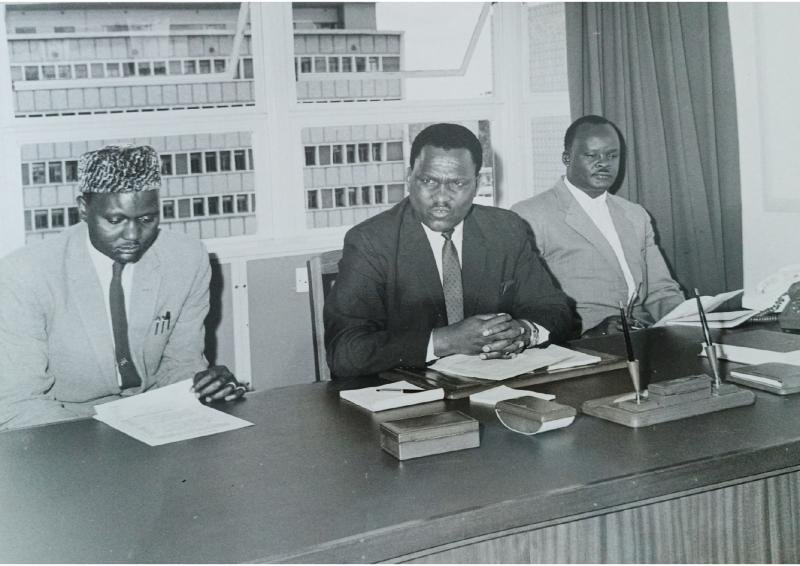×
The Standard e-Paper
Join Thousands Daily

March 13, 1976: Minister for Housing, Mr Paul Ngei at a press conference. On his left is the Assistant Minister, Mr P.L Rurumban and on the right is the Executive Director of the Central Housing Board Mr SG Ayany. [File]
A new election a new scandal, Kenya style. This is what has been the trend in the country, where maize and politics have been inseparable, in the process breeding mega scandals, rumbling stomachs and famine-related deaths and a few millionaires.